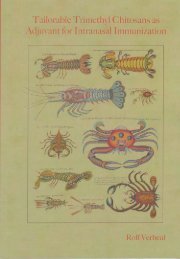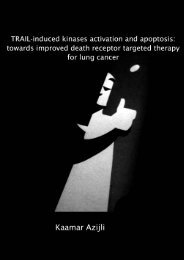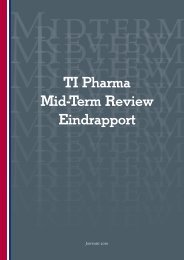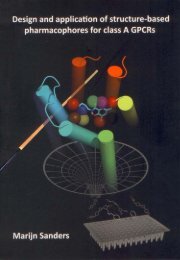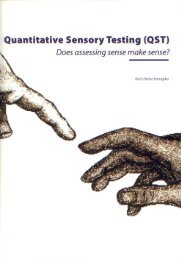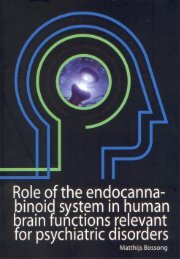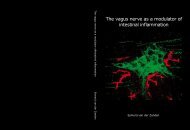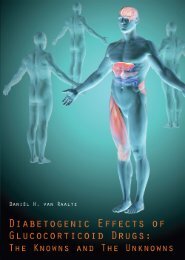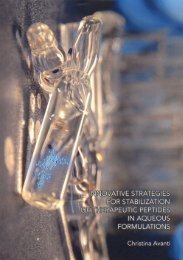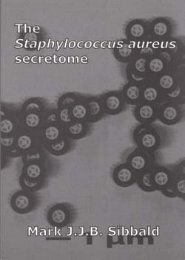Experimental infection and protection against ... - TI Pharma
Experimental infection and protection against ... - TI Pharma
Experimental infection and protection against ... - TI Pharma
You also want an ePaper? Increase the reach of your titles
YUMPU automatically turns print PDFs into web optimized ePapers that Google loves.
110 Chapter 5<br />
in time to microscopically detected parasitemia whereas clinical symptoms are<br />
broadly similar. Although there are several methodological differences between<br />
the CHMI protocols that limit direct comparability, this difference in prepatency<br />
likely results from variation in the mean parasite burden in the first blood stage,<br />
possibly as a result of different inoculum size, whilst blood stage multiplication<br />
factors are equal.<br />
The analysis of adverse events from 175 non-immune participants of sporozoite<br />
challenge trials shows that serious adverse events (grade 4) are rare. One<br />
serious cardiac adverse event was reported; the true nature <strong>and</strong> pathophysiological<br />
explanation of that event remains unclear [21]. Severe adverse<br />
events (grade 3) related to clinical malaria occur in up to half of the volunteers<br />
<strong>and</strong> persist for several days. We conclude that CHMI are generally safe, but may<br />
lead to severe (grade 3) symptoms, though not serious adverse events, in a<br />
significant proportion of subjects. Several precautions are taken in both<br />
institutions to ensure safety of volunteers, such as 24-hour phone access, medicalert<br />
cards <strong>and</strong> emergency contact procedures. Nevertheless, the exposure of<br />
volunteers to the likelihood of some severe adverse events should be carefully<br />
weighed <strong>against</strong> the benefits of the information to be gained [22].<br />
We find significant differences in frequencies of fever, fatigue, arthralgia <strong>and</strong><br />
chills between institutions. Cohorts with a longer prepatent period or a higher<br />
peak parasitemia do not consistently show a higher frequency of adverse events.<br />
These data, combined with methodological differences in the recording of<br />
adverse events (e.g. home-monitoring of oral temperature in RUNMC), lead us<br />
to conclude that biologically relevant variation in patho-physiology between<br />
institutions seems unlikely. Nevertheless, st<strong>and</strong>ardized assessment of adverse<br />
events <strong>and</strong> harmonization of solicited events would advance the interpretability<br />
<strong>and</strong> comparability of CHMI in different settings worldwide.<br />
Laboratory safety parameters show a severe decrease in platelet count<br />
(



